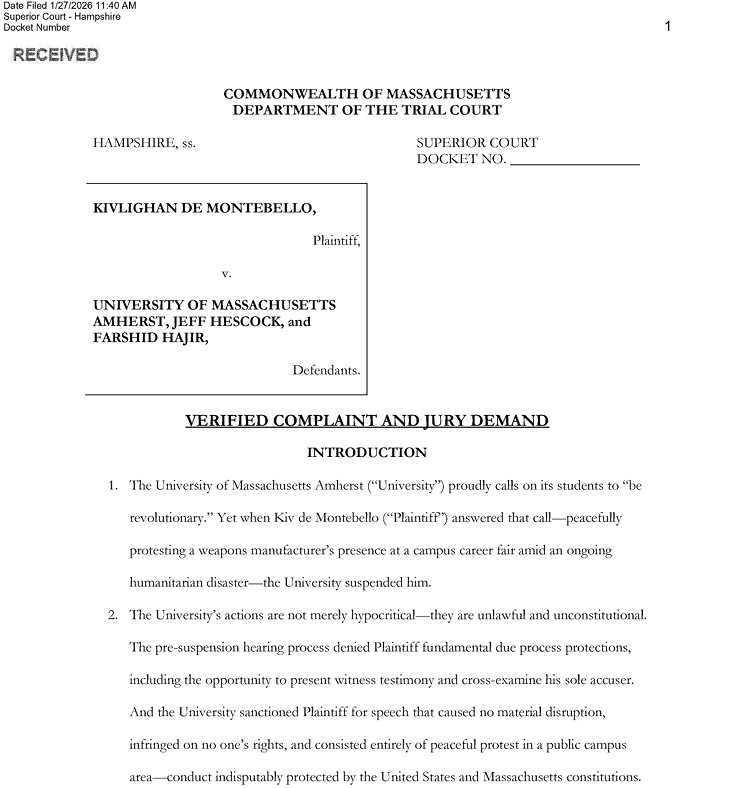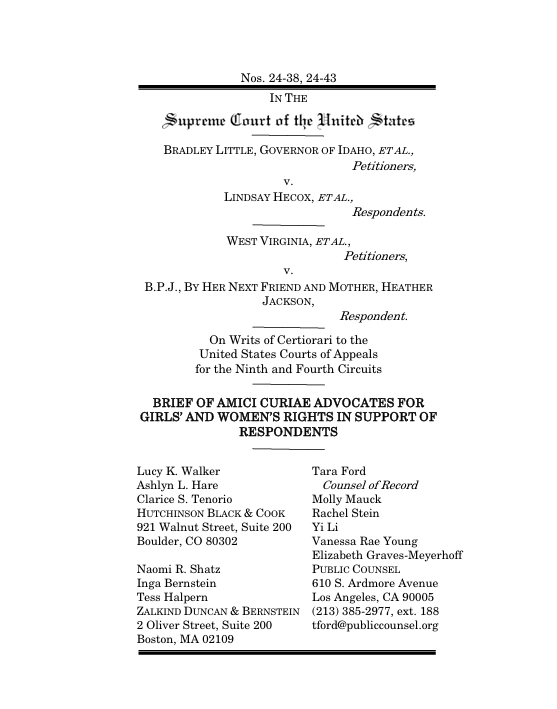Zalkind Law and National Lawyers Guild Sue UMass Amherst Over Free Speech and Due Process Violations
 Yesterday attorneys Naomi R. Shatz and Jackson Estrin along with the National Lawyers Guild filed a free speech and due process lawsuit against UMass Amherst. The lawsuit stems from a peaceful protest of Raytheon, which was recruiting at a campus career fair in September. Although the approximately two dozen protesters were peaceful and did not enter or disrupt the career fair, campus officials ordered them to leave the student center where they were holding the protest then disciplined Kivlighan de Montebello, the plaintiff in the suit, for exercising his free speech rights, suspending him for a year. The lawsuit is filed in Hampshire Superior Court and seeks an emergency restraining order and preliminary injunction ordering the University to overturn the suspension and allow de Montebello to resume his studies this semester.
Yesterday attorneys Naomi R. Shatz and Jackson Estrin along with the National Lawyers Guild filed a free speech and due process lawsuit against UMass Amherst. The lawsuit stems from a peaceful protest of Raytheon, which was recruiting at a campus career fair in September. Although the approximately two dozen protesters were peaceful and did not enter or disrupt the career fair, campus officials ordered them to leave the student center where they were holding the protest then disciplined Kivlighan de Montebello, the plaintiff in the suit, for exercising his free speech rights, suspending him for a year. The lawsuit is filed in Hampshire Superior Court and seeks an emergency restraining order and preliminary injunction ordering the University to overturn the suspension and allow de Montebello to resume his studies this semester.
“The Constitution protects peaceful protest, period,” says attorney Naomi R. Shatz. “Universities can’t punish students for exercising their First Amendment rights just because administrators find the message inconvenient.” CONTINUE READING ›
 Boston Lawyer Blog
Boston Lawyer Blog












